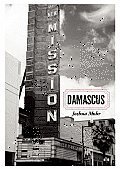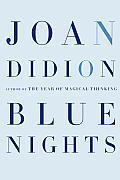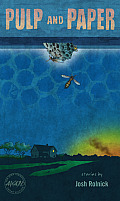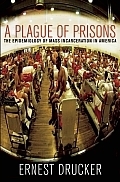Flash Reviews + Other Updates
 Some from-wherever stuff:
Some from-wherever stuff:
1. Still going strong @ the Kenyon Review blog: interviews with the fantastic Roxane Gay and Richard Buckner, and some mild ramblings about one of the year's absolute best books: Kahneman's Thinking, Fast and Slow. I wanted to write more about the thing, but nothing I could write would be as interesting as what Kahneman already has. Get and read that book pronto.
2. Not only do I have new work in Nashville Review (which is totally, totally badass: check their archives for some serious mind-blowing), but see that image to the left? That's the cover art for the new issue. I've been waiting years to have my name noticeably on the cover of something. That may make me sound preeny and whatever, but I don't care: it's a thrill.
3. Also new work in Devil's Lake, a badass mag I've been excited about for a long while.
It occurs to me there's been this stack of books I've had next to me for a bit, books I've wanted to write long things about but which, given the year's coming end and that I'd rather these things at least just get mentioned, I'm gonna flash review here, for now:
 Damascus by Joshua Mohr. Roxane Gay interviewed Mohr @ HTML, which you should absolutely read. I've liked Mohr's stuff before (Some Things that Meant the World still floors), but I wasn't wilded by this one. It's good, yes but didn't knock me sideways—it's a lot kinder book than his previous burners, but also the language feels less leper-y, less fall-apart-at-the-touch, and also moderately less torqued. It's still—that said—10x the book most other books are—a 2 Dollar Radio/Mohr book's head/shoulders above the bulk of what passes for bookery otherwise.
Damascus by Joshua Mohr. Roxane Gay interviewed Mohr @ HTML, which you should absolutely read. I've liked Mohr's stuff before (Some Things that Meant the World still floors), but I wasn't wilded by this one. It's good, yes but didn't knock me sideways—it's a lot kinder book than his previous burners, but also the language feels less leper-y, less fall-apart-at-the-touch, and also moderately less torqued. It's still—that said—10x the book most other books are—a 2 Dollar Radio/Mohr book's head/shoulders above the bulk of what passes for bookery otherwise.
 Blue Nights by Joan Didion. You've seen this one written about elsewhere, over and over. Fine. And of course you're a fool to miss anything Didion, and of course you know the tragic awfulness of things, how, immediately following publication of her Year of Magical Thinking her daughter died and so she lost *all* family at age like 77 all in the span of like 3 years. She looked like a wizardy gnomic seen-too-much being when I saw her read in NYC in 2005. And so now Blue Nights, about the loss of her daughter, and here's the thing: Didion's been writing of world-ending issues forever, or _______-ending issues forever (lest you believe this is the second big thing she's written after the death of someone close to her, recall After Henry, about her editor), and so the shock of this thing's not the circumstances or specifics of the loss, and it's not even Didion's style, or whatever's left of it after she's had so many aspects of her life shocked into unrecognizable new twists—it's that she still fights her way into dashing to and for and around meaning. This book's a pricey miracle.
Blue Nights by Joan Didion. You've seen this one written about elsewhere, over and over. Fine. And of course you're a fool to miss anything Didion, and of course you know the tragic awfulness of things, how, immediately following publication of her Year of Magical Thinking her daughter died and so she lost *all* family at age like 77 all in the span of like 3 years. She looked like a wizardy gnomic seen-too-much being when I saw her read in NYC in 2005. And so now Blue Nights, about the loss of her daughter, and here's the thing: Didion's been writing of world-ending issues forever, or _______-ending issues forever (lest you believe this is the second big thing she's written after the death of someone close to her, recall After Henry, about her editor), and so the shock of this thing's not the circumstances or specifics of the loss, and it's not even Didion's style, or whatever's left of it after she's had so many aspects of her life shocked into unrecognizable new twists—it's that she still fights her way into dashing to and for and around meaning. This book's a pricey miracle.
 Pulp and Paper by Josh Rolnick. Great stories expertly done. I don't know that much necessarily to say about a book like this—years back when Thisbe Nissen's Out of the Girl's Room and Into the Night hit, I thought I'd never read anything like it again, but then, of course, one does—one reads, again and again, well-crafted, gorgeous books in which characters take center stage and you close the thing feeling as if you've fully entered, smelled, touched certain lives other than your own. It's a book you close feeling full, larger than when you'd begun.
Pulp and Paper by Josh Rolnick. Great stories expertly done. I don't know that much necessarily to say about a book like this—years back when Thisbe Nissen's Out of the Girl's Room and Into the Night hit, I thought I'd never read anything like it again, but then, of course, one does—one reads, again and again, well-crafted, gorgeous books in which characters take center stage and you close the thing feeling as if you've fully entered, smelled, touched certain lives other than your own. It's a book you close feeling full, larger than when you'd begun.
 A Plague of Prisons by Ernest Drucker. If you're at all interested in social justice, and if you're looking for the scariest but maybe most necessary companion read to the all-time great social-problem-non-fiction books (Random Family, of course, but also last year's crazy excellent Just Like Us plus also maybe that great old Fist Stick Knife Gun), Plague of Prisons is what you've got to get to next. It's of course terrifying: Drucker's looking at prisons themselves as a social sickness, instead of just focusing on the crime and violence we believe leads to prisons. It seems to this reader not remotely coincidental that Sheriff Joe, in Maricopa County, has just been called out for being the racist f*ck he is: his ability to get away with what he's for years gotten away with would, Drucker'd argue, be almost predictable: given the sickness of overprisoning in this country, Sheriff Joe's an almost automatic result. The book's scary and genius like that, and it came out in September and I should've mentioned it a long long while ago. Read the thing.
A Plague of Prisons by Ernest Drucker. If you're at all interested in social justice, and if you're looking for the scariest but maybe most necessary companion read to the all-time great social-problem-non-fiction books (Random Family, of course, but also last year's crazy excellent Just Like Us plus also maybe that great old Fist Stick Knife Gun), Plague of Prisons is what you've got to get to next. It's of course terrifying: Drucker's looking at prisons themselves as a social sickness, instead of just focusing on the crime and violence we believe leads to prisons. It seems to this reader not remotely coincidental that Sheriff Joe, in Maricopa County, has just been called out for being the racist f*ck he is: his ability to get away with what he's for years gotten away with would, Drucker'd argue, be almost predictable: given the sickness of overprisoning in this country, Sheriff Joe's an almost automatic result. The book's scary and genius like that, and it came out in September and I should've mentioned it a long long while ago. Read the thing.











